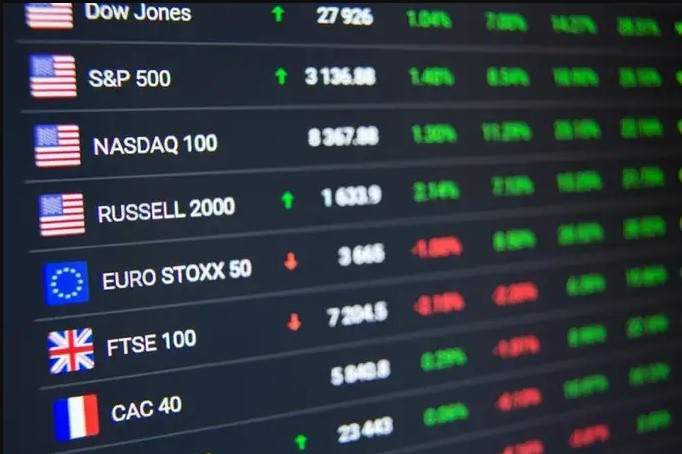
Defining a Stock Market Index
Simply put, a stock market index is a hypothetical portfolio of securities representing a certain facet of the market. They provide simplified snapshots of a specific market sector without having to examine every single asset individually. A stock market index measures its portfolio holdings using specific characteristics. They serve as benchmark comparisons that traders use to gauge market conditions.
Stock Market Index Types
The US stock market along has over 5000 different types of indexes. Each one has their own methodology to calculate its value. In most cases, you can determine an index’s value with a process called weighting. Each index can represent aspects like micro-sectors, geographic segments, or emerging stocks. Outside of the major stock market indexes, many have more narrowly-targeted market focuses. Some examples might include precious metals, clean/renewable energy, and utilities.
What is Weighting?
Many indexes use a process called weighting to calculate their worth. Weighting is a method of adjusting each asset’s individual impact on their portfolio. Companies with a higher measurement of the metrics their index measures will have a greater impact on the portfolio’s value.
As a generic example, let’s say Index XYZ is worth $1,000 and contains 10 different companies in its portfolio. Its value is calculated based on each company’s stock price. Company A’s shares are $200 per, and Company B’s are at $50. All 10 companies won’t account for an equal 10% of weighting in this calculation. Company A will account for 20% of the weighting, since $200 is 20% of $1000. Company B will make up 5% of the weighting, as $50 is just 5% of the index’s $1000.
Many indexes determine their values by weighting their portfolio asset’s prices, floats, market capitalization, or other factors like earnings and revenue.
Price-weighted indexes calculate an index’s worth by adding up each stock’s individual cost, and dividing that sum by the portfolio’s total number of assets. Let’s say a price-weighted index features 50 different stocks. You’d calculate its value by adding up every company’s stock price, and divide the sum by 50.
Market capitalization-weighted indexes determine their values by measuring each individual asset’s relative market capitalization. Stocks with larger market capitalization will have a greater percentage weight, and vice versa for ones with smaller market cap values.
Float-weighted indexes determine their value by multiplying the stock price of their portfolio companies with how many shares available for trade. The formula to calculate this value involves subtracting the number of shares issued by locked in shares, and multiplying it by the stock price.
Fundamental-weighted indexes use specific criteria about the stocks in their portfolio. The facets a fundamentally-weighted index might measure include revenue, dividend yields, and earnings.
5 Most Popular Stock Market Indexes
Dow Jones Industrial Average (DJIA)
The Dow Jones is one of the oldest and most-renowned stock market indexes. This stock market index tracks 30 major industry names. Each one significantly impacts their respective spaces and/or the market as a whole. Most DJIA-listed companies trade off the New York Stock Exchange and Nasdaq.
Financial Times Stock Exchange (FTSE) 100
The FTSE 100 is considered the United Kingdom’s (UK) major stock market index. It comprises 100 companies listed on the London Stock Exchange based on market capitalization. This stock market index is highly influenced by the British Pound, and companies listed are globally focused. As a result, it’s not considered a reliable indicator to gauge the UK economy’s overall health.
Nasdaq
Known for featuring technology-based companies, this stock market index lists around 3000 names traded on the Nasdaq exchange. No other exchange has their own popular index. The Nasdaq measures stocks from industries like transportation, energy, industrials, and insurance. To determine the Nasdaq’s worth, calculate the average market capitalization of all companies listed.
Russell Indexes
This is a family of indexes from the FTSE that allow traders to track global performances of specific market segments. The most popular index within this bunch is the Russell 2000, which monitors the bottom 2000 small-cap stocks of the Russell 3000 index. Russell’s indexes list all companies in descending order via float-weighted adjustments. The top 1000 stocks in the Russell 3000 make up the large-cap Russell 1000 Index.
Standard & Poor (S&P) 500
Commonly referred to as the S&P 500, this stock market index tracks the 500 largest and most widely-traded securities. This stock market index uses market capitalization-weighting to calculate its value. It’s a very strong indicator of movement in the American market, and features companies from practically every major stock market sector.
Enjoying Our Content?
Subscribe to our free newsletter – Traders Daily Brief
Read more of our blogs



